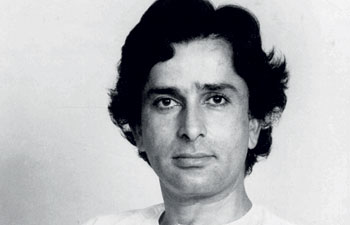Shashi Kapoor
This is a collection of articles archived for the excellence of their content.
|
Contents |
The person
Highlights
Career in films
December 5, 2017: The Times of India
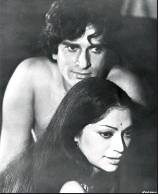
From: December 5, 2017: The Times of India
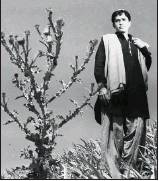
From: December 5, 2017: The Times of India

From: Avijit Ghosh, The Most Understated Of The Kapoors Leaves Behind A Rich Legacy In The Performing Arts, December 5, 2017: The Times of India
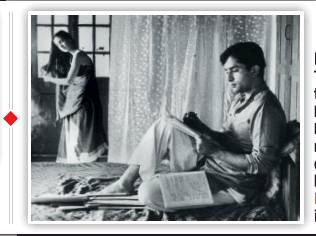
From: Avijit Ghosh, The Most Understated Of The Kapoors Leaves Behind A Rich Legacy In The Performing Arts, December 5, 2017: The Times of India
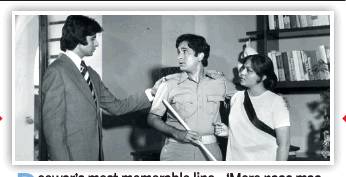
From: Avijit Ghosh, The Most Understated Of The Kapoors Leaves Behind A Rich Legacy In The Performing Arts, December 5, 2017: The Times of India
His classics will stand the test of time but equally vital was Shashi’s love for theatre-—where he found the other great love of his life, Jennifer Kendal. One of Shashi’s great dreams was to build a place for performing arts. The dream became a reality when the Prithvi Theatres building was readied in 1978. In the seasons that followed, the centre gave a major boost to quality Hindi theatre in Mumbai, carrying forward a tradition which began with the Kapoor patriarch Prithviraj.
The Kolkata-born actor began his career as a child artiste. He was named Balbir Raj but became Shashi Kapoor when he graduated to doing lead parts. Everybody noticed him as the young right-winger in Yash Chopra’s Dharmputra (1961) but major box-office success eluded him till he played the naïve and sentimental shikarawala in the romantic drama, Jab Jab Phool Khile (1965) in which he serenaded Nanda with the classic Kalyanji-Anandji composition, ‘Ek tha gul aur ek thi bulbul’. Around the same time, he worked in indie films like The Householder (1963), Shakespeare-Wallah (1965) and Bombay Talkies (1970) by the not-yet-famous Merchant-Ivory duo.
Shashi also had the lead part in the British movie, A Matter of Innocence. His scene with an unclad Simi Garewal in Conrad Rooks’s Siddhartha, based on a Herman Hesse novel about a rich Indian merchant prince in search of life’s eternal truths, became a major talking point. Later, he also had notable parts in Heat and Dust (Merchant-Ivory, again) and Pierce Brosnan’s The Deceivers, both British Raj movies. In that sense, he was the only Bollywood hero of his time who became a familiar face abroad.
It was a different story back home. Despite the occasional box-office smash such as Sharmeelee (1971), his career was more troughs than crests. The surprise success of Chor Machaye Shor (1974), still remembered for the wedding band favourite, ‘Le jayenge le jayenge dilwale dulhaniya le jayenge’, hauled him out of the abyss.
Unit hand-turned-star
Before he became a matinee idol, Shashi Kapoor was an assistant director for three years. Later he assisted elder brother Shammi Kapoor on his directorial debut, Manoranjan (1974), a remake of the Jack Lemmon classic, Irma La Douce
Rich pedigree
His father and father-inlaw were titans of theatre. Prithviraj was among founding members of Indian Peoples Theatre Association and known for trail-blazing social drama under the Prithvi Theatres banner. The Kendals too had a company called Shakespearana which toured the subcontinent in the 40’s and 50’s, staging the Bard’s works
The comeback
After a series of failures in the late 60’s, he had no work. When the offers returned, Kapoor swore he would never be unemployed again. By the early 80’s, he was the busiest of actors if not the most bankable. Raj Kapoor started calling him a “taxi” because he was shuttling from one set to another, doing 6 shifts a day
The artist
His multi-faceted personality was best expressed through collaborations outside the mainstream. The star ploughed back his earnings to create movies as diverse as Junoon (based on a Ruskin Bond story on the 1857 mutiny), Vijeta (on the life of an air force pilot), Kalyug (a modern take on Mahabharata), and Utsav
Shashi Kapoor also produced classics such as Junoon, Kalyug, 36 Chowringhee Lane and Utsav.
When the multi-starrer era came, Shashi adroitly blended with the mood of the times. He didn’t have Amitabh Bachchan’s felicity with fists but he positioned himself as a smart and cool romantic-action hero which made him a vital ingredient in big-budget films.
The male-bonding pair combined to create superhits such as Deewar, Trishul, Suhaag, Kabhi Kabhie and Namak Halaal. Not many remember that it was Shashi, playing the just and ethical inspector, who spoke the iconic Salim-Javed dialogue— “Mere paas maa hai”—in Deewar although it was Bachchan, with the more flamboyant part of the angry rebellious dockworker, who embossed himself in popular imagination. Few also remember that Shashi claimed a Filmfare Award for the Best Supporting Actor in Deewar. Years later, Shashi got the National Award for playing the role of an upright journalist in New Delhi Times (1986).
In his solo career, Shashi delivered a clutch of hits in the 1970s, notablyFakira, Chori Mera Kaam and Satyam Shivam Sundaram. During this period, he also signed films left, right and centre. The buzz went that he had signed 100 movies. The actor worked sometimes in three shifts. Unable to get the dates from his own brother for the film, Satyam Shivam Sundaram, Raj Kapoor once compared him to “a taxi”. The film went on to become one of his biggest solo hits.
In 1978, Shashi had 12 releases. The reason why he broke his back working in so many Bollywood commercial films was primarily to finance his dream: producing meaningful movies and constructing a theatre which his father, Prithivraj, always wanted.
Long before he received the Dada Saheb Phalke award in 2015—his father and brother Raj have also received India’s highest film award-—Shashi had fulfilled both his dreams.
Kapoor’s last memorable performance was as an ailing poet past his prime in the Ismail Merchant film In Custody. The character from an Anita Desai novel, was a poignant reminder of the actor’s own mortality.
A profile
Madhu Jain
March 27, 2015
Theatre remains the first love of Dadasaheb Phalke Award-winner Shashi Kapoor, Indian cinema's first real crossover actor
Shashi KapoorShashi KapoorSometimes, extreme good looks can be a handicap. Shashi Kapoor would have been right up there in the pantheon of legendary thespians in Hindi cinema had he been a little less handsome, a little less picture-perfect. Producers took him for his looks; and, he was predominantly cast as a romantic star. The Dadasaheb Phalke Award for 2014, announced days after his 77th birthday, for his contribution to Indian cinema may set the record right-prodding film critics and historians to reevaluate not only his considerable and versatile acting skills but his role as a risk-taking film producer and his unstinting contribution to theatre.
Shashi Kapoor was a reluctant film star. Barely 15, he became an employee of his father Prithviraj Kapoor's Prithvi Theatres for a monthly salary of Rs.75, remaining there until 1960, when it closed down. He wanted to learn all facets of theatre from acting, lighting and arranging props to management. He oscillated between Prithvi Theatre and his brother Raj Kapoor's RK Studios where he wanted to study the technical aspects of cinema. Raj Kapoor sent him to the top of the studio to study lighting, with the words, "Garmi mahsus karo (Feel the heat)."
It was more than heat that Shashi experienced with the elder Kapoors, both hard taskmasters. He performed the hand-me-down roles his brothers Raj and Shammi had already essayed-often standing in as an extra in the touring Prithvi Theatres productions-and sat on top of trucks guarding stage props and costumes when he was an assistant stage manager. He also had child stardom thrust on him: playing the younger Raj Kapoor in Aag (1948) and Awara (1951).
Double shifts defined Shashi's early career. He went back and forth between Prithvi Theatres and Shakespeareana, also a touring theatre company managed by Geoffrey Kendal, the father of his future wife Jennifer Kendal whom he met when he was 18. He also moved between two worlds: the Hindi theatre of the time (with the exception of Shakuntala) and Shakespeare-he acted as Gratiano in The Merchant of Venice and as Cassio in Othello. The years with Shakespeareana, where he stayed informally until 1963, set him apart. Perhaps, this is where he honed his acting skills, was groomed into the perfect gentleman and metamorphosed into somewhat of an angrez. Shashi Kapoor told me about a telling incident which took place in a Penang restaurant. While ordering rice, he asked for a "bowel of rice". An amused Geoffrey Kendal, who was not on the best of terms with him, "spluttered" out his beer and came up to him and said, "Bowl, not bowel, you silly bugger." Apparently, the ice was broken between the two.
Shashi Kapoor married at 20, and his first child, Kunal, was born when he was 21. Broke, he reluctantly joined Hindi films. However, his first few films, beginning with Char Diwari (1961) and later Dharmputra (1961), directed by Yash Chopra, tanked at the box office. The jinx was broken with the resounding success of Jab Jab Phool Khile (1965), with Nanda as his leading lady; they acted in seven films together. Apparently, Raj Kapoor asked the actress to "watch" over his youngest brother.
The good times had come. The latter half of the '60s saw a series of romantic comedies that were box-office hits, including Haseena Maan Jayegi (1968) and Pyar Ka Mausam (1969). The lucky streak continued in the '70s, marked by a string of successful films including Aa Gale Lag Jaa (1973), Kabhie Kabhie (1976), Trishul (1978), Suhaag (1979), and Deewaar (1975), with Amitabh Bachchan as a co-leading man. In fact, the duo worked together in films into the early '80s, including popular films such as Silsila (1981) and Namak Halaal (1982). Rather unfairly, industry insiders joked that Shashi Kapoor was Bachchan's favourite heroine. Had it not been for Shashi's nuanced performance in Deewaar, the film may not have been such a milestone in Hindi cinema. Underplaying the role, he was a perfect foil for his more melodramatic screen bad brother Bachchan. His histrionic skills are more evident in the films in which he explores the complexities of human nature, particularly in the two films produced by him and directed by Shyam Benegal. In Junoon (1978) he inhabits obsession. In his masterful portrayal of a modern-day Karna from the Mahabharata, Shashi interprets both the manipulative nature of his character as well as his pain and vulnerability.
Shashi Kapoor is probably Indian cinema's first real crossover actor, with the exception of Sabu Dastagir who played Mowgli in Hollywood. He acted in six Merchant Ivory films, beginning with Householder in 1963, Shakespeare-Wallah two years later, followed by Bombay Talkie in 1970 and Heat and Dust in 1983, the film that definitively catapulted him to international fame, and in which he was a romantic but shady nawab.
Shakespeare-Wallah may not have been a commercial success but international directors began to notice him: he played the romantic lead opposite Hayley Mills in Pretty Polly in 1967, directed by Oscar winner Guy Green. American director Conrad Rooks cast him as the title character in Siddhartha in 1972. James Ivory told me Shashi Kapoor could have been the Indian Cary Grant with the right directors. The American director also believed that the actor was good at exploring the dark side of human nature. Discussing Bombay Talkie, he said: "We all have our own dark sides, and Shashi is able to bring up his."
International directors explored his dark side: as a wily nobleman who is also a thuggee in The Deceivers (1988), starring Pierce Brosnan before his Bond days, as a compromised Pakistani businessman in Stephan Frears's Sammy and Rosie Get Laid (1987), based on a Hanif Kureishi screenplay. The late film critic Pauline Kael, known for her acidic pen, had only praise for Shashi Kapoor, specially the wit in his performance in a film she panned. Other international roles included a fading Bollywood actor in New York in Tony Gerber's Side Streets (1998), as angel Gabreel in Jamil Dehlavi's Jinnah (1998); he also acted in Gulliver's Travels, a TV series for NBC, which also included Sir John Gielgud and Peter O' Toole.
Perhaps, Shashi Kapoor's most memorable role is as a producer. Unlike most players, he financed the six films he produced. It must be a Kapoor trait: Raj Kapoor sold his wife's jewellery, the younger sibling sold 18 acres of land near Panvel on the outskirts of Mumbai to make 36 Chowringhee Lane (1981).
But theatre has remained his first love. Frail and bound to a wheelchair, he seldom leaves his flat opposite Prithvi Theatre, which he set up with Jennifer, and has nurtured ever since. If you are lucky you can spot him sitting there, watching a play. Especially if children are taking part in it.
Some traits of personality
December 4, 2017: The Times of India
Dadasaheb Phalke award winner
Actor-filmmaker, Shashi Kapoor was presented with the prestigious Dadasaheb Phalke award by Union Information and Broadcasting Minister Arun Jaitley. The veteran actor was unable to attend the award ceremony in Delhi because of his ill-health, therefore, he was handed over the award at a function at Prithvi Theatre in suburban Mumbai. Shashi Kapoor acted in many films and has contributed immensely to Hindi cinema.
Shashi Kapoor never took work home
Shashi Kapoor was a very popular actor of his time and has acted in several hit films like 'Kabhie Kabhie' and 'Jab Jab Phool Khile', which were shot in Kashmir. According to a report, the actor never brought work home. The report further quoted his son Kunal Kapoor as saying that his father would try to schedule his outdoor shooting schedules to coincide with the kids' school holidays. And since most of the actor's films were shot in Kashmir, the family often holidayed there. The report further quoted Kunal as saying that, "If he packed up early, we'd go out for lunches, long walks, shikara rides and even picnics."
Shared a great rapport with son Kunal
Shashi Kapoor apparently shared a very good rapport with his son, Kunal Kapoor. His son revealed that they would often have long talks on movies and theatre. Speaking to a daily, Kunal Kapoor said, "After I became an actor and a producer, we often discussed cinema and theatre, but more of other people's work than our own. He admired his older brother Raj Kapoor and respected Satyajit Ray. I recall meeting Sohrab Modi whose Sikander he was impressed by, a couple of times. We played father and son in Vijeta which he produced. I was really nervous but he made it easy for me, never saying, 'Don't do this.' On the contrary he'd say that if you don't fall down, how'd you learn to pick yourself up."
Never been a big fan of awards
Shashi Kapoor was associated with several blockbuster films and some critically acclaimed ones as well. When it was announced that the veteran actor will be conferred with the prestigious Dadasaheb Phalke Award, his son, Kunal Kapoor revealed that his father had never been a fan of awards. Speaking to a daily, Kunal said, "Dad never gave much importance to awards. For him the only two serious recognitions were the President's Golden Medal and the Dadasaheb Phalke Award which he's just received. When he heard the news, he smiled and laughed a little."
The perfect co-star
Shashi Kapoor was a heartthrob back in the '70s and like many others, Shabana Azmi too was a huge fan of the actor. Speaking to a daily, the actress revealed that she would save her pocket money and buy posters of Shashi Kapoor from Grant Road and get them autographed by him. The actress later on romanced Shashi Kapoor in Fakira, sharing her experience Shabana said, "I was a crazy fan and to suddenly land a role opposite my childhood idol in Fakira was unbelievable! On the first day, we were shooting the song 'Dil mein tujhe...' During rehearsals when the dance director, Satyanarayan, demonstrated the moves, I was aghast! I couldn't get so intimate with Shashi Kapoor, I told my hairdresser, and burst into tears in my make-up room. Minutes later, my hero was banging on the door wanting to know what the problem was. When I tearfully explained, he mocked, 'Mummy, mummy mujhe actor banna hai!' Calling me a silly girl, he told me to come out when the shot was ready. When I arrived on the set, I found that he had changed all the moves so I'd be more comfortable."
Never wanted the media glare
Shabana Azmi had more kind words to share about her co-star Shashi Kapoor. In an interview, the actress revealed how Shashi Kapoor never came in the media glare. Shabana Azmi stated that when she and several others from the industry were demanding alternate housing for several slum-dwellers in Colaba, it was Shashi Kapoor who put their word forward to the Chief Minister. The actress revealed, "Shashi Kapoor turned up wanting to know our demands. He left soon after and went straight to the Chief Minister, Shankarrao Chavan, telling him that the film industry had always supported the government in a crisis and he couldn't let the demands of one of its members go unheard. I was on stage, about to thank Shashi Kapoor for negotiating the deal for us, when I saw him step away from the media glare, slip away into an alley and disappear. He didn't want any accolades and never spoke about it, ever. That's the kind of person he is."
Began acting at the age of 4
According to a report, Shashi began his tryst with acting at the tender age of four. He was reportedly a part of several plays that were directed and produced by his father Prithviraj Kapoor. Apparently, he worked as a child artist in four films. Interestingly, he acted as a child artist with Pran in 'Sanskar' and later on as he grew up, the two shared the screen in nine films. And later marked his big screen debut as a hero in 1961 with the film 'Dharmputra'.
Preferred to invest money only in theatre and cinema
Shabana Azmi, in her interview with a leading daily also revealed that Shashi Kapoor put his money only in theatre and cinema, over other commercial businesses. Sharing an anecdote Shabana said, "When we went for the Moscow Film Festival, with just eight dollars in foreign exchange, we were all trapped for cash. But despite the presence of bigwigs like FC Mehra and Raj Kapoor, Shashi Kapoor footed every bill." The report further quoted Shabana Azmi as saying that Shashi Kapoor had done a lot to build an institution like Prithvi Theatre.
Tried his hand at direction too
Shashi Kapoor was not just an exceptional actor but had also tried his hand at direction. In 1991, he had directed a film called Ajooba that starred Amitabh Bachchan in the lead role. Sharing a story from the sets, Amitabh Bachchan said in an interview, "He moved around the set with a stick in his hand, with the intention of using it on anyone who misbehaved. But he never used it! He was one director who cared immensely for his artistes and technicians, on an equal plane."
Prithvi Theatre
A gentle soul who left behind a legacy called Prithvi Theatre, December 5, 2017: The Times of India
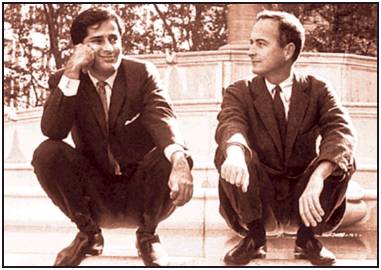
From: A gentle soul who left behind a legacy called Prithvi Theatre, December 5, 2017: The Times of India
The theatre’s journey begins with Shashi Kapoor’s father, Prithviraj Kapoor, who would travel third-class to venues across the country to perform plays with his repertory company, Prithvi Theatres, launched in 1944. After his death, Shashi and wife Jennifer decided to take his father’s dream of providing a platform to promote Hindi theatre by forming a trust. In 1978, this trust constructed a theatre on the original site in Juhu where Prithviraj built a theatre that was to be his company “home”.
Its non-profit approach made it an affordable platform, while also generating enough income to sustain operations. The theatre hosted prominent artistes and companies like Indian People Theatre’s Association. Soon, stalwarts like MS Sathyu, Naseerudin Shah, Om Puri and Ratna Pathak Shah became regulars. With Jennifer’s death in 1984, son Kunal Kapoor took over its operations. Kunal later had the assistance of sister, Sanjana Kapoor.
In spite of owning the theatre, Shashi would buy tickets to watch plays there, says film and theatre critic Deepa Gehlot.
Family
Filmography
As an actor
1945 Tadbir
1948 Aag
1950 Samadhi
1950 Sangram
1951 Awaara
1961 Char Diwari
1961 Dharmputra
1962 Mehndi Lagi Mere Haath
1962 Prem Patra
1963 Holiday in Bombay
1963 Jab Se Tumhe Dekha Hai
1963 The Householder
1963 Yeh Dil Kisko Doon
1964 Benazir
1965 Jab Jab Phool Khile
1965 Mohabbat Isko Kahete Hain
1965 Shakespeare-Wallah
1965 Waqt
1966 Biradari
1966 Neend Hamari Khwab Tumhare
1966 Pyar Kiye Jaa
1967 A Matter of Innocence
1967 Aamne - Saamne
1967 Dil Ne Pukara
1968 Haseena Maan Jayegi
1968 Juaari
1968 Kanyadaan
1969 Ek Shriman Ek Shrimati
1969 Jahan Pyar Mile
1969 Pyar Ka Mausam
1969 Raja Saab
1970 Abhinetri
1970 Bombay Talkie
1970 My Love
1970 Rootha Na Karo
1970 Suhana Safar
1971 Patanga
1971 Sharmeelee
1972 Chori Chori
1972 Jaanwar Aur Insaan
1972 Siddhartha
1973 Aa Gale Lag Jaa
1973 Naina
1974 5 Rifles
1974 Chor Machaye Shor
1974 Insaaniyat
1974 Jeevan Sangram
1974 Mr. Romeo
1974 Paap Aur Punya
1974 Roti Kapada Aur Makaan
1974 Vachan
1975 Chori Mera Kaam
1975 Deewaar
1975 Prem Kahani
1975 Salaakhen
1975 Anari
1976 Aap Beati
1976 Deewaangee
1976 Fakira
1976 Kabhie Kabhie
1976 Koi Jeeta Koi Haara
1976 Naach Uthe Sansaar
1976 Naag Champa
1976 Shankar Dada
1977 Chakkar Pe Chakkar
1977 Doosara Aadmi
1977 Farishta Ya Qatil
1977 Hira Aur Patthar
1977 Immaan Dharam
1977 Mukti
1978 Aahuti
1978 Amar Shakti
1978 Apna Khoon
1978 Atithee
1978 Do Musafir
1978 Heeralal Pannalal
1978 Muqaddar
1978 Phaansi
1978 Rahu Ketu
1978 Satyam Shivam Sundaram: Love Sublime
1978 Trishna
1978 Trishul
1979 Ahsaas
1979 Chor Sipahee
1979 Duniya Meri Jeb Mein
1979 Gautam Govinda
1979 Junoon
1979 Kaala Patthar
1979 Suhaag
1980 Do Aur Do Paanch
1980 Ganga Aur Suraj
1980 Kala Pani
1980 Kali Ghata
1980 Neeyat
1980 Shaan
1980 Shiv Shakti
1980 Swayamvar
1981 Baseraa
1981 Ek Aur Ek Gyarah
1981 Kalyug
1981 Kranti
1981 Krodhi
1981 Maan Gaye Ustaad
1981 Silsila
1982 Bezubaan
1982 Do Guru
1982 Namak Halaal
1982 Vakil Babu
1982 Vijeta
1982 Sawaal
1983 Bandhan Kuchchey Dhaagon Ka
1983 Gehri Chot: Urf - Door-Desh
1983 Ghungroo
1983 Heat and Dust
1984 Bandh Honth
1984 Chakma
1984 Ghar Ek Mandir
1984 Pakhandi
1984 Utsav
1984 Yaadon Ki Zanjeer
1984 Zameen Aasmaan
1985 Aandhi-Toofan
1985 Alag Alag
1985 Bepanaah
1985 Bhavani Junction
1985 Pighalta Aasman
1986 Aurat
1986 Ek Main Aur Ek Tu
1986 Ilzaam
1986 Kissa Kathmandu Kaa (TV serial)
1986 Maa Beti
1986 New Delhi Times
1986 Swati
1987 Anjaam
1987 Ghar Ka Sukh
1987 Ijaazat
1987 Naam O Nishan
1987 Pyaar Ki Jeet
1987 Sammy and Rosie Get Laid
1987 Sindoor
1988 Akhri Muqabla
1988 Commando
1988 Hum To Chale Pardes
1988 Kaun Hai Khooni
1988 The Deceivers
1989 Bandook Dahej Ke Seenay Par
1989 Clerk
1989 Farz Ki Jung
1989 Gair Kaanooni
1989 Jaaydaad
1989 Meri Zabaan
1989 Oonch Neech Beech
1989 Touhean
1990 Raeeszada
1991 Akayla
1993 Aag Ka Toofan
1994 Muhafiz/ In Custody
1994 Saboot Mangta Hain Kanoon
1994 Vivekananda
1995 Faisla Main Karungi
1996 Gulliver's Travels (Television film)
1998 Ghar Bazar
1998 Jinnah
1998 Side Streets
As a producer
1979 Junoon
1981 36 Chowringhee Lane
1981 Kalyug
1982 Vijeta
1984 Utsav
1991 Ajooba
As a director
1991 Ajooba
Top films of Shashi Kapoor
Niyati Budhiraja, December 5, 2017: The Times of India
The Bollywood actor began his career as a child artist with ‘Aag’, bagged his first lead role in 1961 in the film ‘Dharmputra’. The actor worked in over 100 films and was an institution in himself.
Here is a list of the actor’s top films. by Niyati Budhiraja
1. 'Deewar'
Directed by Yash Chopra, written by Salim-Javed, ‘Deewar’ stars Amitabh Bachchan and Shashi Kapoor in the lead roles. The film tells the story of two impoverished brothers who grow up to follow different career paths: Vijay (Amitabh) becomes a smuggler and Ravi (Shashi) becomes a policeman who eventually must hunt down Vijay. This film gave viewers the most iconic dialogue, “Mere paas maa hai” and was a path-breaking film that saw remarkable performances by both the leading men.
2. 'Satyam Shivam Sundaram'
Directed by Raj Kapoor and written by Jainendra Jain, ‘Satyam Shivam Sundaram‘ is a social drama about the differences between physical and spiritual love and clashing religious beliefs. The film starred Shashi Kapoor and Zeenat Aman. It was an iconic film set in a village that captured the brewing romance between the protagonists despite their differences. The film is also known for its amazing soundtrack and melodious songs.
3. 'Junoon'
Set around the Indian Rebellion of 1857, ‘Junoon’ is based on Ruskin Bond’s story ‘A Flight of Pigeons’. Directed by Shyam Benegal and produced by Shashi Kapoor himself, the filmed starred a great set of actors and also Shashi’s wife Jennifer Kendal. The film had a powerful plot and it won the National Film Award for Best Feature Film in Hindi. Shashi played a reckless feudal chieftain whose world revolves around breeding carrier pigeons.
4. 'Namak Halaal'
Directed by Prakash Mehra, ‘Namak Halaal’ was an action comedy film, that gave the film industry evergreen songs like ‘Jawani Jan-E-Man’, ‘Pag Ghungroo Baandh’ and ‘Raat Baaki Baat Baaki’. The film became a blockbuster at the box office and eventually went on to be a golden jubilee hit. It is the story of a boy who works at a hotel and learns about a conspiracy against his master and owner of the hotel. He tries to save his life at any cost.
5. 'Aa Gale Lag Jaa'
‘Aa Gale Lag Jaa’ was a romantic filmed starring Shashi Kapoor, Sharmila Tagore and Shatrughan Sinha in lead roles. Shashi Kapoor plays an amateur skater who falls in love with Sharmila, a young woman living along with her widower father. The film is known for its soulful songs ‘Vaada Karo’ and ‘Tera Mujhse Hain Pehle Ka Nata Koi’ that became chartbusters.
6. 'Chor Machaye Shor'
The 1974 film 'Chor Machaye Shor' starred Shashi Kapoor and Rekha in the lead roles. The film's story is about an engineer played by Shashi who falls in love with a rich girl played by Rekha, however, Madan Puri who portrayed the role of Rekha's father opposes their marriage. It became a super hit film and boasted of superhit songs like 'Ghungaroo Ki Tarah', 'Ek Daal Par Tota Bole', 'Le Jayenge Le Jayenge'.
7. 'Fakira'
Released in 1976, 'Fakira' once again brought the producer - N. N Sippy, the cast - Shashi Kapoor, Asrani, Danny Denzongpa, Madan Puri and the composer - Ravindra Jain, of 'Chor Machaye Shor' together. The film was a huge hit and songs 'Fakira Chal Chal' and 'Tota Maina Ki Kahani' became everyone's favourite. The film tells a story about two brothers (Shashi and Danny) who lose their parents in a fire and soon get separated from each other. They both become criminals and each other's enemies. Shabana Azmi and Aruna Irani also appeared in pivotal roles.
8. 'Haseena Maan Jayegi'
Directed by Prakash Mehra, the film starred Shashi Kapoor, Babita, Ameeta, Yunus Parvez and Johnny Walker. In the film in which Shashi Kapoor was seen playing a double role has many twists and turns until the end. The central plot of the movie revolves around three characters - Kamal and Rakesh played by Kapoor and Archana, played by Babita.
The song 'Bekhudi Mein Sanam' from the film became quite popular among all other songs of the film.
9. 'Sharmeelee'
The Shashi Kapoor and Rakhee starrer 'Sharmeelee' was a hit at the box office. The audience witnessed powerful performances by Shashi and Rakhee. Songs of the film were composed by S. D. Burman and sung by Kishore Kumar, Lata Mangeshkar, and Asha Bhosle. Directed by Samir Ganguly, the film's story revolves around an army captain Ajit Kapoor (Shashi), Kanchan and Kamini (played by Rakhee).
10. 'Jab Jab Phool Khile'
The blockbuster film 'Jab Jab Phool Khile' starred Shammi Kapoor and Nanda in lead roles. The plot of the film revolved around a Kashmiri village guy, a girl - heiress of the throne and their love story. The songs of the beautifully picturised flick were composed by duo Kalyanji-Anandji. Songs like 'Na Na Karte Pyar Tumhin Se', 'Pardesiyon Se Na Ankhiyan Milana', 'Ye Samaa Samaa Hai Pyar ka' are immortalized in everyone's minds.
2015: Dadasaheb Phalke award
Mar 24 2015
Avijit Ghosh
Dadasaheb Phalke award for Shashi Kapoor
The birthday gift came five days late. But actorproducer Shashi Kapoor, who turned 77 last week, wouldn't mind. For, the gift is very special. On Monday , a jury named him for this year's Dadasaheb Phalke Award, India's most prestigious award in cinema. Shashi will be the third of the Kapoors, widely regarded as Bollywood's first family , to receive the honour. His father Prithivraj (1971) and elder brother Raj (1987) were the other two. The award consists of a golden lotus, a cash prize of Rs 10 lakh and a shawl.
In the 1960s, Shashi formed a popular box-office pair with Nanda, with whom he delivered his first jubilee hit, `Jab Jab Phool Khile' 1965, reworked three decades ater as Raja Hindustani starring Aamir Khan).
But, Shashi's most profitable collaboration happened with Amitabh Bachchan in the 1970s and 80s. In times when every second Hindi film revolved around brothers -either warring or separated at birth or both -the two were associated n a bunch of box-office biggies: Deewar', `Trishul', `Suhaag', Kabhi Kabhie' and `Namak Halaal'. Big B stole the show in Deewar but Shashi not only de ivered the iconic dialogue -Mere paas maa hai -but also claimed a Filmfare Award for he best supporting actor.
This was the era of multistarrers. Most top directors of he time had roles for Shashi. But during this phase, he also acted in dozens of humdrum flicks that few remember today.It is said, he had once signed nearly 100 films. Many of these were never made. The actor worked three shifts. His broth er, Raj, once famously equated him with a taxi. His `Satyam Shivam Sundaram' (1978) was one of Shashi's biggest solo hits. A rare performance of heft came much later in `New Delhi Times' (1986) in which he played a conscientious newspaper editor. It won him a National Award for best actor.
Perhaps Shashi's insecurity was rooted in the lean patch he underwent in the late 1960s and early 1970s before he found his feet again with `Chor Machaye Shor' (1974). But the truth is he poured most of his earnings in producing some of the finest in alternative cinema and in building Prithvi Theatre, his father's dream of an exclusive space for the performing arts which gave a huge fillip to quality Hindi theatre in Bombay .
It is Shashi's contribution to meaningful cinema as a producer that makes him stand apart from other actors.Two of these films were based on literary works: `Junoon' from Ruskin Bond's `A Flight of Pigeons' and `Utsav' from `Mrichakatika' by ancient India dramatist Sudraka. He also promoted talent; Aparna Sen made her debut as director in `36 Chowringhee Lane'.
Urbane, stylish and charming, Shashi was dangerously good-looking. Girls and their mothers would swoon over his crooked teeth, twinkling eyes and irresistibly mischievous smile. That sparkle seemed to vanish after he lost his wife Jennifer Kendal in 1984. Health issues have troubled him since.Hopefully, the award will bring back, even for a few moments, the famed impishness of Shashi Kapoor.
